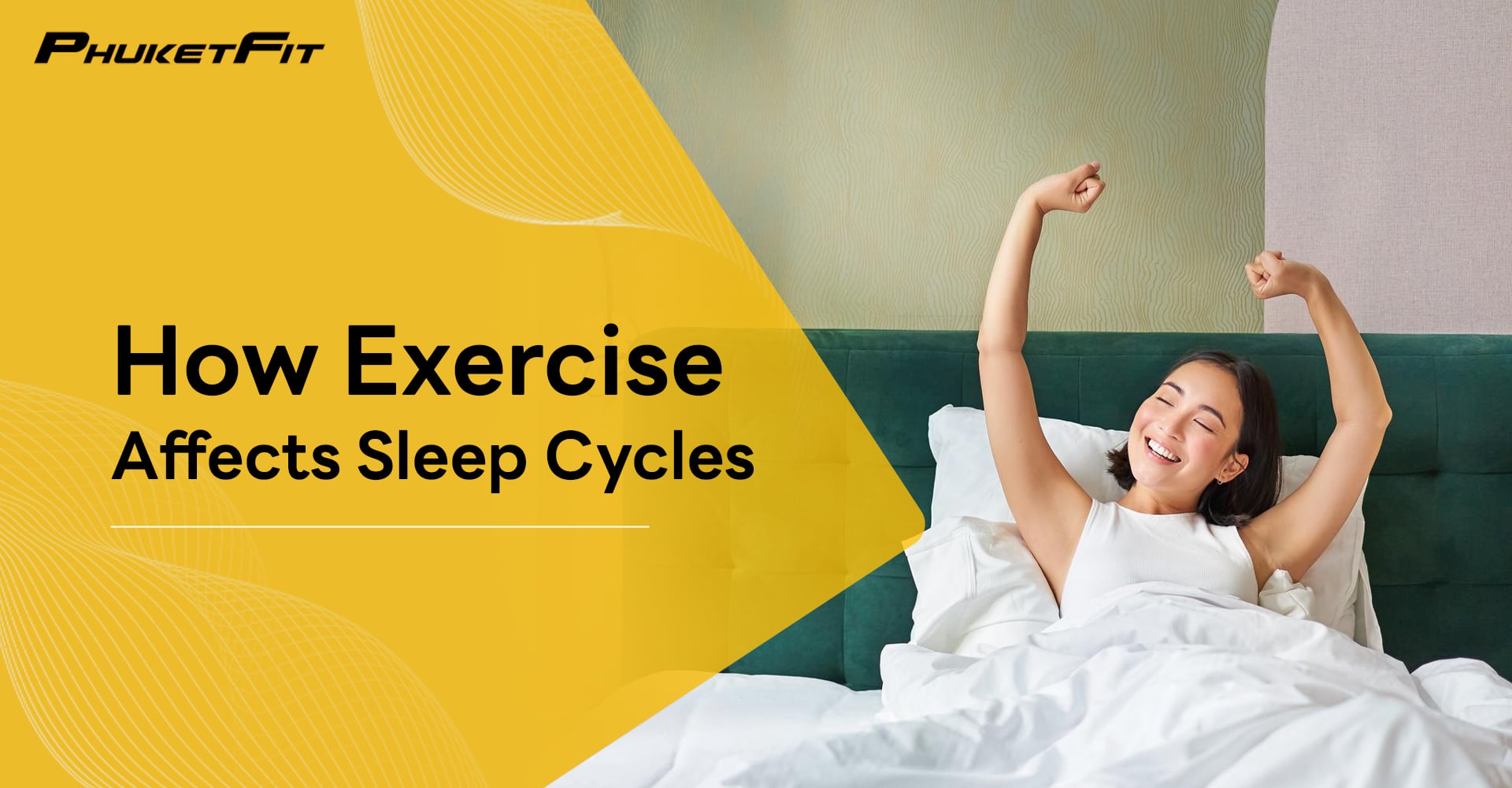
How Exercise Affects Sleep Cycles
The day-to-day rollercoaster of maneuvering through each rise and fall, trying to reach that magic point of day’s end when your head finally touches the pillow, your troubles are swept away, the chaos is gone, and you’re at peace. But is this really such an unreachable dream? A bridge from the bustling wakeful hours into the calming cocoon of sleep through the night is more easily built than you’d ever believe: exercise. It really is not a question of getting tired, but the realization of the deep and magical relationship between hitting the gym and enjoying sound sleep, something that could overhaul your being into the best.
The Magical Relationship Between Exercise and Sleep
At the core of the secret of a sound, refreshing night’s sleep lies an amazing secret. How does more daytime exercise connect to better sleep? The science is clear—exercise profoundly affects sleep quality, aligning with our body’s biological clock to encourage deeper, more restorative sleep phases. According to the CDC, regular physical activity can help you fall asleep faster and deepen your sleep (CDC on Physical Activity).
Unleash the Physical and Psychological Benefits
For those battling insomnia or sleep apnea, exercise is a natural remedy. It plays a critical role in weight management, which can alleviate sleep apnea symptoms, leading to smoother breathing at night. Beyond the physical, exercise is a potent psychological buffer against the day’s stress, preparing the mind for sleep. The Department of Health & Human Services outlines how physical activity can improve health in various ways, potentially enhancing sleep quality through stress reduction and physical tiredness (Physical Activity Guidelines).
As it is well known, the stress faced during the daytime very often follows one to bed. Physical exercise acts as a buffer and an intermediate that dissipates all of that mental load, allowing the ushering in of calm readiness for sleep. It is a powerful friend in the fight for improved sleep; the dual effect of sleeping against physical and mental barriers of sleep.
The Fascinating Bidirectional Dance
The relationship between sleep and exercise is a delicate dance. Recognizing this cycle is vital for leveraging exercise to enhance sleep quality. Regular, moderate exercise recalibrates your body’s clock, synchronizing your wake and sleep cycles in harmony. Johns Hopkins Medicine also emphasizes how exercise contributes to better sleep, suggesting that even a single workout session can make a difference (Exercising for Better Sleep).
Tailored Solutions for Every Sleeper
Regardless of age or lifestyle, exercise offers a universal key to unlocking better sleep. For students juggling academics and social commitments, establishing a consistent exercise routine can be a game-changer. It combats the effects of irregular sleep schedules and mitigates stress, leading to more restful nights. Older adults, facing changes in sleep patterns, can turn to exercise as a natural means of enhancing sleep quality, adapting activities to suit their needs and abilities.
Personalizing Your Approach: Exercise Plans for Sleep Disorders
Although the benefits of exercise on sleep are universal, thejsonal approach is crucial. To develop a plan of physical exercises according to your sleep difficulties, take into account consulting with health professionals. Be it a change in the time of workouts to avoid over-stimulating the body just before bed, or a change in the kind of workouts to one that will be producing a relaxed state, the program must be individualized.
Conclusion
The road to better sleep by developing a regime of exercise is an intense testament to the body’s adaptability and resilience. Setting physical activity as a priority in your life means not investing in fitness solely but also setting the stage for nights of deep, rejuvenating sleep. This magical connection between exercise and sleep is more than a health tactic—it is a change in lifestyle that promises better well-being and increased vitality. So grab those sneakers, hit the sidewalk or the gym, and exercise your way to transforming living. Your best sleep is waiting on the other side of your next workout.
